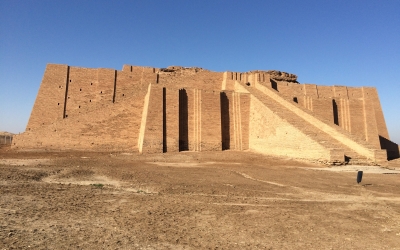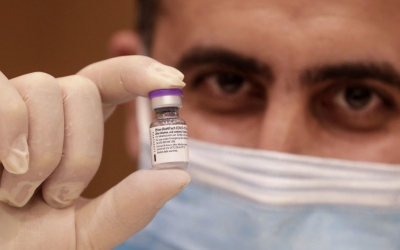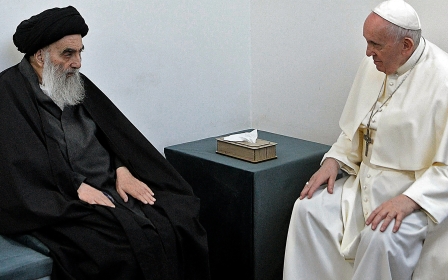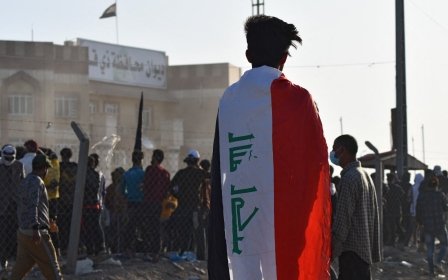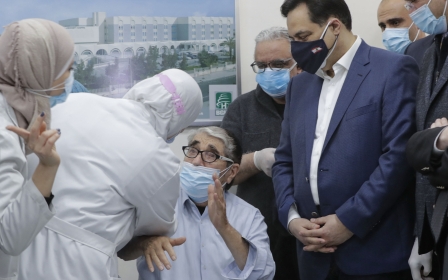Lebanon is next for visit, says Pope Francis
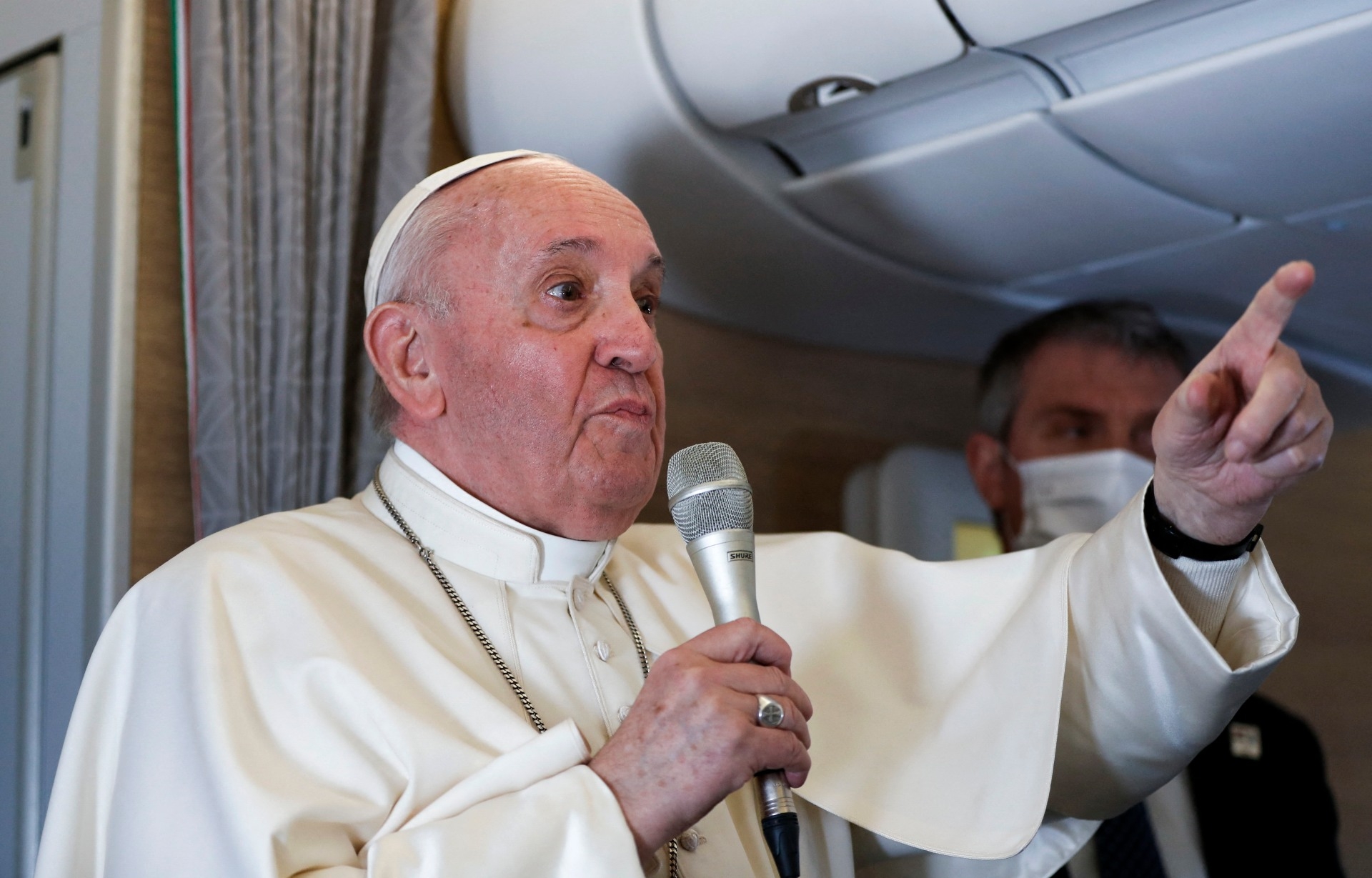
Pope Francis has said his next trip will be to Lebanon, which is suffering under a frightening economic crisis and recovering from the catastrophic explosion in Beirut port.
Francis wrapped up a historic three-day tour of Iraq on Monday, during which he met the country’s highest Shia authority and visited Mosul, a city still reeling from Islamic State group occupation.
The 83-year-old last year signalled his intention to visit Lebanon and South Sudan, and confirmed to reporters on his flight back to Rome that Beirut is his next destination.
Francis said Bechara Boutros Rai, Lebanese patriarch of the Maronite Church and a cardinal, asked him to stop by Lebanon on his return from Iraq.
“But it seemed like a bit of a crumb... A crumb before the problems of a country that is suffering like Lebanon,” he said, according to Vatican News.
The pope noted it was important to pay Lebanon a visit, as the country hosts huge numbers of refugees despite being gripped by a spiralling economic crisis.
About one million refugees, the vast majority sheltering from the war in neighbouring Syria, live among four million Lebanese. Lebanon has the highest number of refugees per capita of any country in the world.
Meanwhile, its economy is in freefall. Last week the Lebanese pound hit 10,000 to the dollar on the black market, sparking protests and roadblocks. Until late 2019 the pound was pegged at 1,500 to the dollar.
Lebanon’s crisis has only been exacerbated by the 4 August explosion at Beirut port, where a rotting stash of highly explosive ammonium nitrate ignited, killing around 200 people and leaving much of the capital in ruins.
The blast prompted Lebanon’s failing government to resign, however efforts to form a new one have stagnated. Meanwhile no one has been held accountable for the port blast.
'Good for my soul'
In Iraq, Francis called for the return and protection of Iraq’s persecuted Christian population.
It is estimated around 1.5 million Christians lived in Iraq in 2003 before the US occupation unleashed a sectarian conflict and later, IS’s traumatic occupation of much of the country’s north and west reduced that number to around 150,000-300,000
Somewhere between 30-40 percent of Lebanon’s population is Christian.
“I am deeply troubled to see the suffering and anguish that has sapped the native resilience and resourcefulness of the Land of the Cedars,” Francis said of Lebanon in his Christmas message on 25 December, adding that he has great “affection” for its “beloved people”.
Francis’ trip to Iraq has been considered a huge success, despite anxieties over his security and conducting such an event during the Covid-19 pandemic.
The head of the Catholic Church defended visiting Iraq as authorities there struggled to contain the virus, telling reporters on his plane he was "conscious of the risks".
He also talked up the importance of his hourlong meeting with Ayatollah Ali al-Sistani, Iraq's highest Shia authority who has great sway but rarely makes public appearances.
"I felt the need to make this pilgrimage of faith and penitence and to go and find a great, wise man, a man of God - you could tell that just by listening to him," Francis said of the 90-year-old cleric.
"That meeting was good for my soul."
Lebanese officials were quick to welcome the papal trip to Iraq as he touched down in Baghdad on Friday.
“Welcome Pope Francis to the land of the East, the land that has always brought together civilizations, religions, and cultures,” Lebanese President Michel Aoun said, adding the trip was a “push toward establishing the genuine peace that Iraqis, as well as all the other peoples of the region, need”.
Prime Minister-designate Saad Hariri, meanwhile, tweeted: “We look forward to receiving the pope in Lebanon.”
Middle East Eye delivers independent and unrivalled coverage and analysis of the Middle East, North Africa and beyond. To learn more about republishing this content and the associated fees, please fill out this form. More about MEE can be found here.


